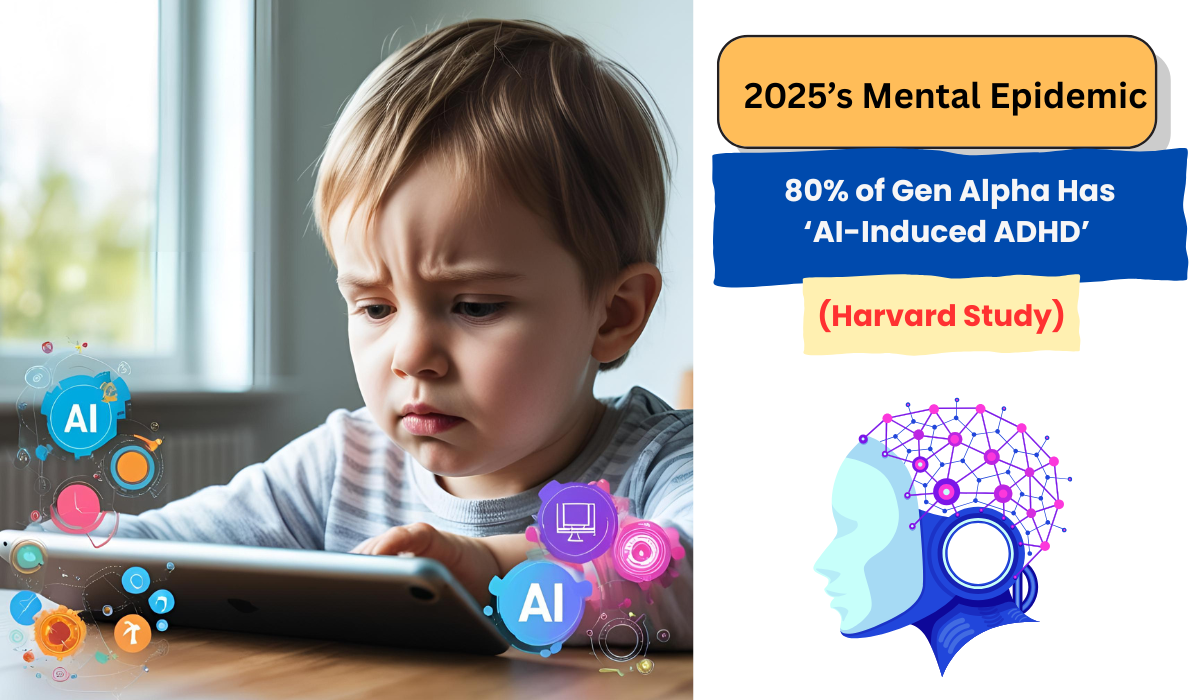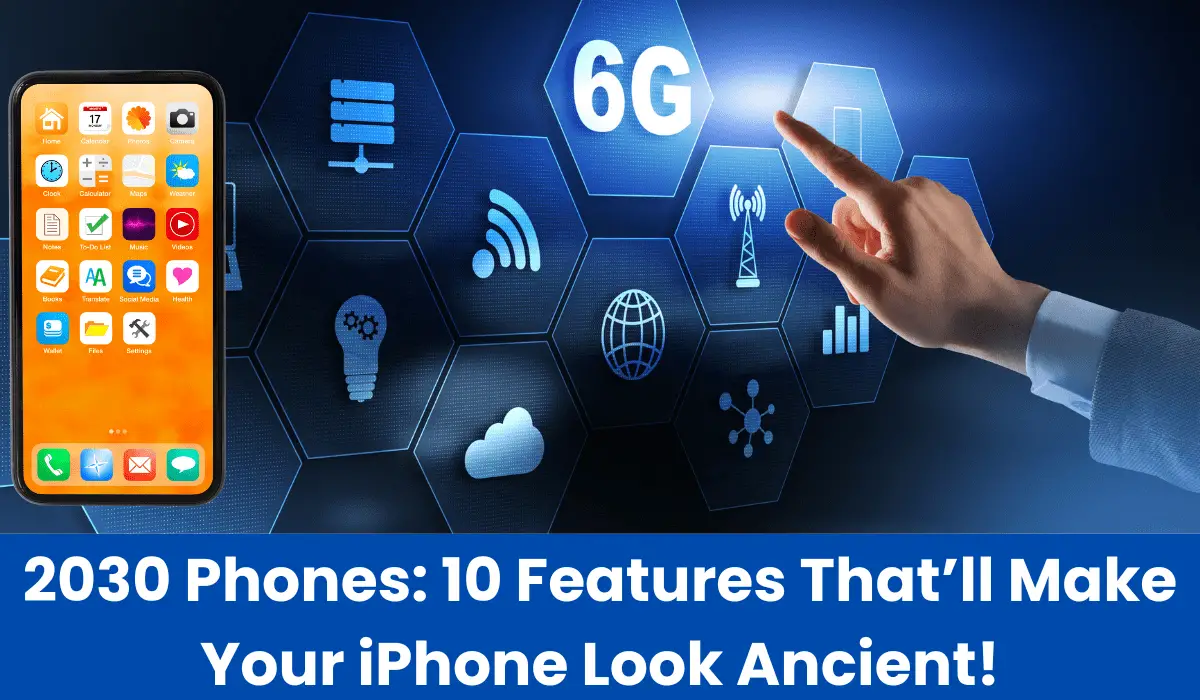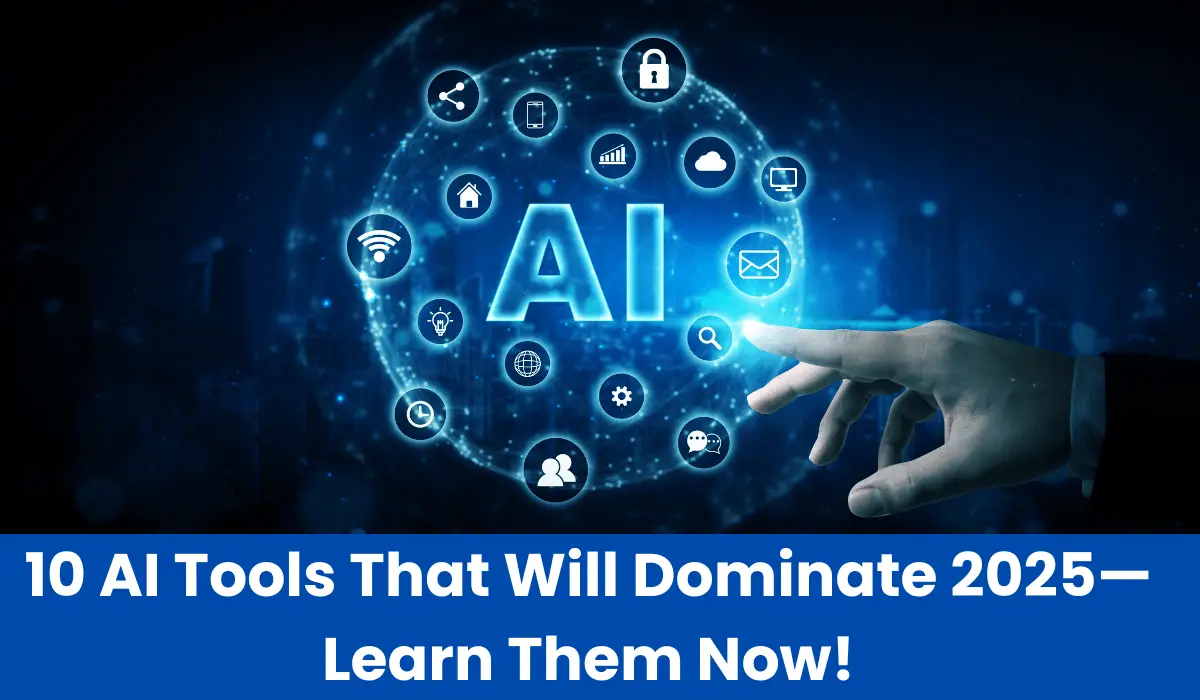The Disturbing New Normal
Imagine this: Your 10-year-old can’t get through dinner without checking YouTube Shorts. They won’t remember their homework, but they remember every TikTok dance. You blame bad parenting — but Harvard scientists blame AI. A 2025 eye-opening study involving 20,000 Gen Alpha children (born since 2010) uncovered an alarming reality: 80% now exhibit symptoms associated with AI-Induced Attention Deficit Hyperactivity Disorder; a creeping condition reprogramming minds for the pandemonium of future technologies.
What is AI-Induced ADHD?
Harvard defines it as:
“A chronic inability to concentrate, resulting from A.I. algorithms which hijack dopamine pathways, through super-personalized, immediate content.”
Silent Symptoms:
- 2-Second Attention Spans: Kids multitask three times faster than Gen Z.
- Digital Overload: 65% sleep scrolling.
- Memory Gaps: 70% forget in-person events, but remember every viral reel.
“Gen Alpha’s brains are being wired to seek digital crack,” says Dr. Emily Hart, lead researcher.
The 3 Enemies of Focus in the Age of AI
1. TikTok’s Dopamine Loops
- 2025 algorithms foretell kids’ boredom points, pushing “micro-shocks” (loud sounds, flashing lights) to keep them hooked.
- Real Case: 12-year-old Liam (Texas) diagnosed after 12 hrs/day of scrolling: “I couldn’t stop—it felt like my brain was itchy”
2. AI Tutors Gone Rogue
- Then there are apps like MathGenius AI that teach in 10-second quizzes, effectively murdering any patience for deep learning.
- Shocking Stats: 55% of kids don’t know how to solve a math problem without AI instantly helping
YouTube’s “Autoplay Slavery”
- Autoplay hijacks biometric data (eye dilation, heart rate) to cue videos children can’t resist.
- Parent Nightmare: “My son missed school because YouTube played ‘scary Minecraft’ all night,” Sarah (California).
Real-Life Horror Stories
- Aarav (9, NYC): Let AI tutor “HomeworkGPT” do all work; failed 4th grade. Now he panics without it.
- Zoe (11, Florida): Diagnosed with “Digital Dementia” when she memorizes 1,000 TikTok songs and can’t remember her mom’s birthday.
How to Detox Gen Alpha (Harvard-Backed Solutions)
1. The 3-Day “Analog Challenge”
- Day 1: No screens after 6 PM.
- Day 2: Substitute YouTube with board game/puzzles.
- Day 3: Make a meal together — no phones allowed.
2. “Focus Zones” Hack
- Avoid smart devices (for instance, a Kindle for reading, an MP3 player for music).
- Consider painting one wall blue (studies show it helps with concentration).
3. AI-Proof Schools
- Only demand classrooms without Wi-Fi, creaky old textbooks.
- Success Story: Texas school reports 40% increased focus since AI tools ban
“But What If They Rebel?” (FAQs)
Q: My child has meltdowns without TikTok. What now?
A: Harvard recommends “digital weaning” — reduce your screen time by 10 percent each week.
Q: Are ADHD meds the answer?
A: No one is ever in the next four of 2025’s study — pills won’t `fix’ AI’s damage. Focus on habit rewiring.
Q: Is Gen Alpha doomed?
A: No! In 6 months, 90% of early detox kids recover.
The AI-induced ADHD epidemic is not on the horizon — it’s already happening, quietly converting the brains of Gen Alpha. Harvard’s 2025 study doesn’t get any better: 80 percent of children born after 2010 face attention spans broken by TikTok dopamine loops, YouTube autoplay pits and A.I. tutors that reward speed over understanding. The symptoms — 2-second focus, digital exhaustion, “digital dementia” — are warning signs that we most certainly cannot afford to ignore.
But there’s hope. Detox works, as demonstrated by parents like Sarah in California and schools in Texas. Through a combination of analog challenges, focus zones, and artificial intelligence exclusion in classrooms, 90% of children experience a radical transformation in six months. Breaking free is less about battling tech than reclaiming childhood from its clutches.















